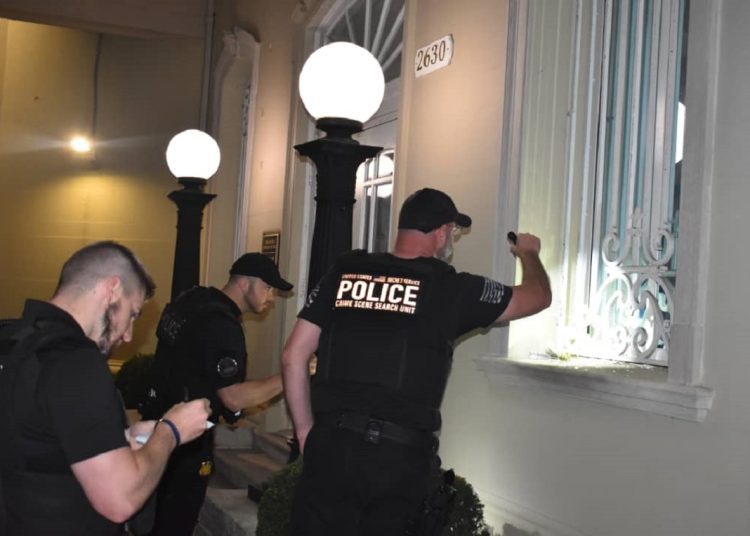Authorities from Cuba and the United States held talks this Wednesday in Washington about security and law enforcement. At the meeting, the island’s representatives gave their U.S. counterparts information on people “identified for their links to terrorism.”
The meeting was the sixth on this topic held by both governments since 2015, to promote “cooperation to combat terrorism, the illicit trafficking of migrants and immigration fraud, drug trafficking, among other scourges that threaten the security of the two countries,” according to the Cuban Foreign Ministry.
According to a note published by the Cuban Ministry of Foreign Affairs (MINREX), the exchange “took place in a climate of respect and professionalism.”
During it, the island’s delegation “transferred information and cooperation proposals to the U.S. side on the activities of people living in the United States, identified for their links to terrorism, illegal human trafficking and other illicit activities.”
According to the Cubaminrex portal, both delegations “agreed that there are transnational crimes that threaten the security of both countries and that require cooperation to confront them.”
They also agreed to “continue this dialogue and hold other technical meetings between the law enforcement agencies of the two countries to materialize bilateral cooperation.”
https://twitter.com/CubaMINREX/status/1755315012007084172?ref_src=twsrc%5Etfw%7Ctwcamp%5Etweetembed%7Ctwterm%5E1755315012007084172%7Ctwgr%5E25f7667ea25b9003094cd8e6056e5b282f6d0111%7Ctwcon%5Es1_&ref_url=https%3A%2F%2Foncubanews.com%2Fcuba-ee-uu%2Fcuba-entrego-a-eeuu-informacion-sobre-personas-identificadas-por-su-vinculacion-al-terrorismo%2F
However, the Cuban Foreign Ministry makes it clear that this exchange “does not contradict the most absolute rejection of the unjustified and arbitrary inclusion of Cuba in the list published by the State Department on States that supposedly sponsor terrorism,” a provision that was “duly registered” at the meeting.
For its part, the U.S. State Department confirmed that the meeting sought to “improve police and judicial coordination channels between both countries,” according to EFE.
This dialogue, according to Washington, allows for increasing the national security of the United States through “better coordination of law enforcement,” protecting U.S. citizens and bringing criminals to justice.”
The U.S. side highlighted that in all its interactions with the Cuban government, it puts “the defense of human rights” on the table while reaffirming its commitment to holding “constructive talks” with the Cuban Executive “whenever appropriate to promote U.S. interests.”
The Cuban delegation to the meeting in Washington was made up of representatives of the Ministries of the Interior and Foreign Affairs, the Attorney General’s Office, and the General Customs of the Republic. Meanwhile, the U.S. side was made up of representatives from the Departments of State, Homeland Security and Justice.
Last December, Cuba published a national list of terrorists, which includes a group of people based mainly in the United States. It later emerged that said list had already been delivered by the island’s authorities to Interpol.
Cuban National List of Terrorists already in hands of Interpol
Also last December, the Cuban government accused Washington of “complicity” for “the sheltering, protection and tolerance” that in its opinion certain “promoters and commissioners of terrorist acts” against the island enjoy in U.S. territory.
Cuban Minister of Foreign Affairs Bruno Rodríguez assured on social media that the United States “is very aware of the official, public and repeated complaints of the government of Cuba” about the protection that in its opinion Washington offers to people whom Havana accused of terrorism.
Although the Biden administration has sat down at the table with the island’s government — especially to discuss immigration issues — bilateral relations remain far from the “thaw” that occurred in the last years of Barack Obama’s mandate.
Furthermore, President Biden has so far kept Cuba on the list of countries sponsoring terrorism, following the policy of his predecessor Donald Trump, and despite the rejection of this measure by governments and international organizations and even by some U.S. congresspeople.
EFE/OnCuba










